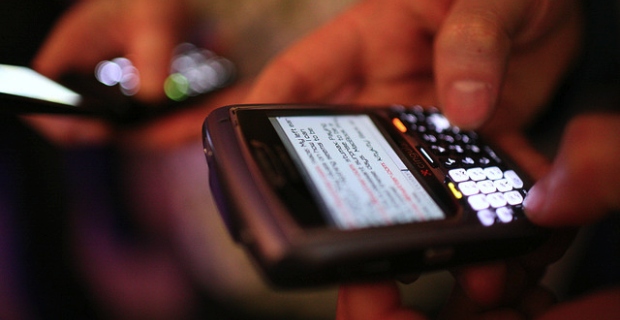RIM could still face lawsuits over BlackBerry outages

Research in Motion, the troubled BlackBerry maker, could be sued for taking the best part of a week to fix an outage, which took its email, browsing and data services offline across the world.
Last week's outage began in a European datacenter which spread across four continents over the course of four days, crippling all but every BlackBerry in its regional path.
Law firms in the U.S. and Canada are reported to be exploring possible consumer lawsuits against the BlackBerry maker, in a bit to recoup business and personal losses by end-users across North America. Citing reasons of "breach of contract" or "consumer fraud" claims, Reuters reports that customers' common claims could be banded together into a single suit.

Though it is beyond unlikely that Research in Motion could face criminal action, civil actions still may be a long shot for frustrated users, who turned to social networks like Facebook and Twitter to air their grievances.
Customers will not only have to show that they suffered damages beyond the lack of service, they will also have to prove that they were misled over the reliability of the BlackBerry service before they signed up for phone contracts. This, unlike Microsoft's 99.9 percent cloud uptime claim, which continues to be disputed, will be difficult to confirm.
Companies with a dependency, like any technology company with a reliability factor, from cloud services to supply chains, will have clauses to avoid such suits in case things go wrong. It was only a few weeks ago when the PlayStation Network terms and conditions changed to prevent a mass class-action suit over the widespread hacks earlier this year.
Along with this, a Supreme Court decision in April this year, denounced as a "crushing blow to consumers", upheld the rights of companies to enforce small-print language, forcing consumers and end-users to waive their rights to file lawsuits.
Whether Research in Motion has a clause to prevent class-action suits, it remains to be seen.
Arguably, no matter which way one looks at it, Research in Motion did compensate its customers -- though it appeared somewhat profit-focused to some. Charles Arthur with the Guardian said in a tweet that the compensation is: "to try and lock people into its platform more tightly with $100 of premium apps for free".
Whether or not any lawsuits are successful, the nail in the company's coffin will be in form of the customer distrust. If consumers bring suits against the Ontario smartphone giant, it proves that the company's customer relations have crumbled. Beyond its falling shares, it has a customer trust issue to battle with, for which it may never recover from.